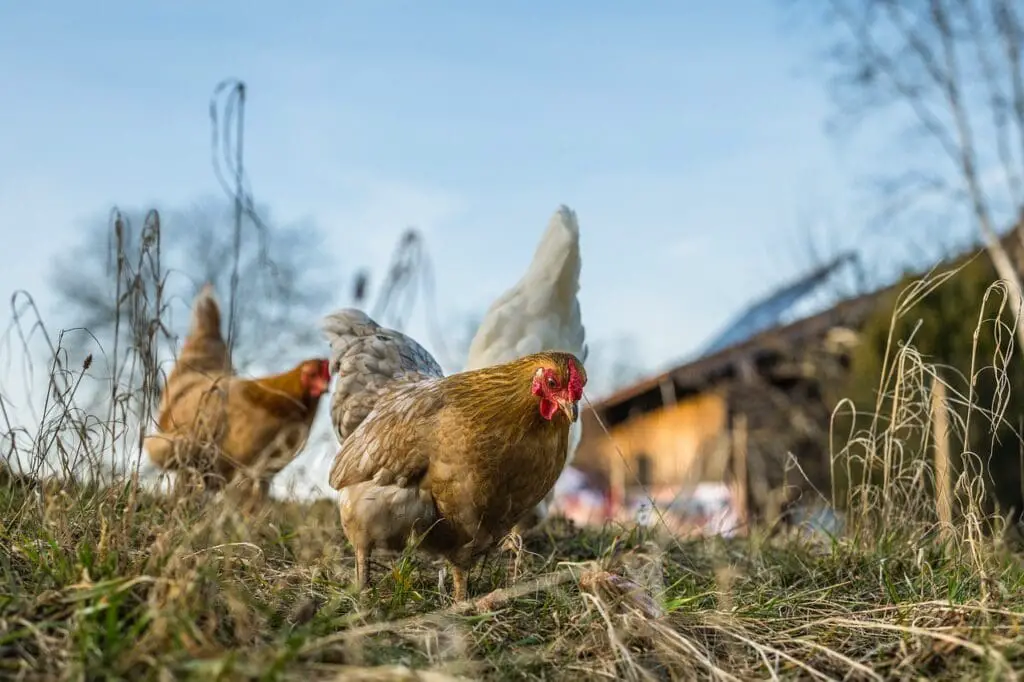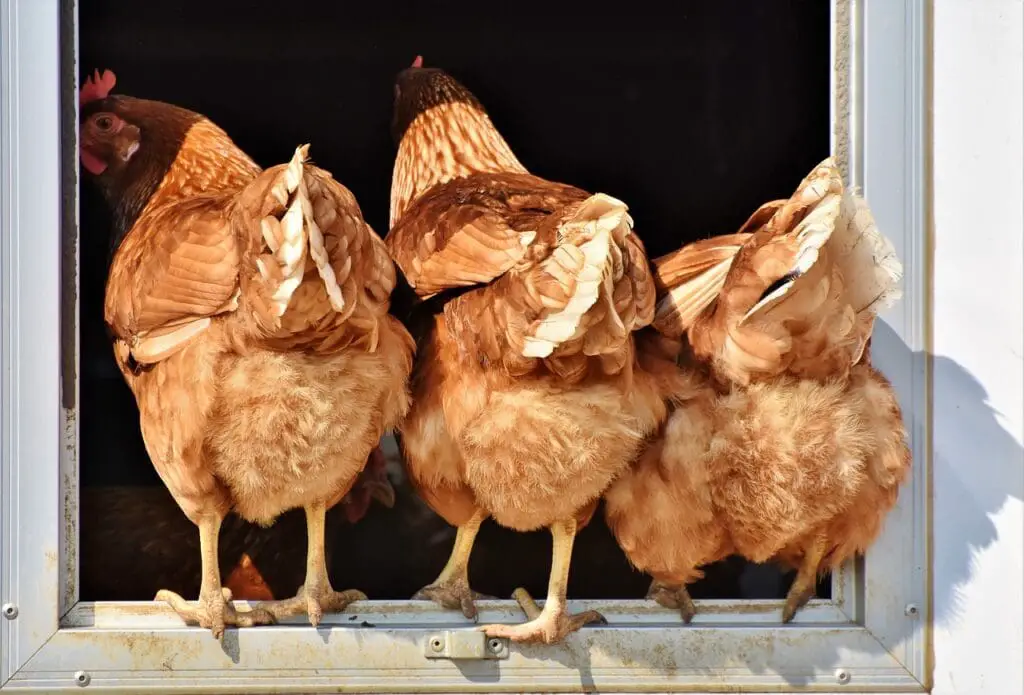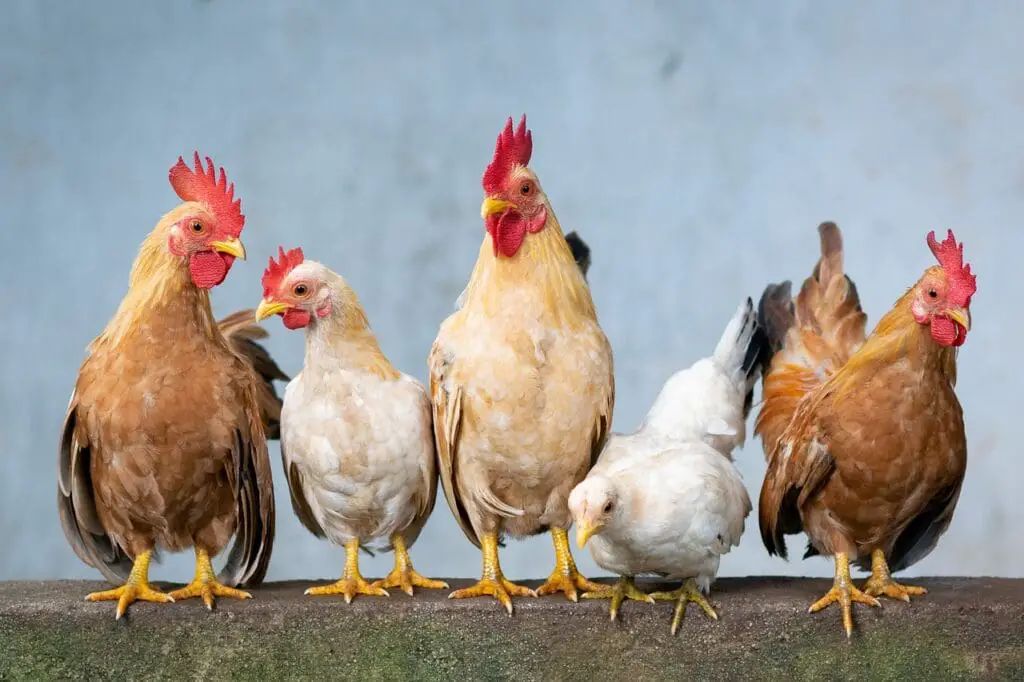Key Takeaways
- Bamboo can be a nutritious addition to a chicken’s diet due to its fiber content and essential minerals and vitamins.
- Feeding bamboo to chickens can offer potential benefits such as improved digestive health, immune system support, and environmental enrichment.
- However, there are risks associated with feeding bamboo to chickens, including the presence of cyanogenic glycosides and potential digestive issues.
- It is important to introduce bamboo gradually, provide a balanced diet, and monitor the chickens’ response when incorporating bamboo into their diet.
- Further research is needed to determine the exact nutritional composition of bamboo and its suitability as a feed for chickens.
Introduction
Chickens are known for their diverse and adaptable diet, consisting mainly of grains, seeds, insects, and vegetation. However, the inclusion of bamboo in their diet is a relatively new concept that requires careful consideration. Understanding the nutritional value of bamboo is crucial in determining its suitability for chickens. Additionally, it is essential to explore the potential benefits that bamboo may offer to chickens, such as improved digestion or enhanced egg production.
However, as with any dietary change, there are potential risks associated with feeding bamboo to chickens. These risks may include digestive issues or the presence of toxins in certain bamboo species. Therefore, guidelines and precautions for introducing bamboo into a chicken’s diet should be followed to ensure the safety and well-being of these birds.
By delving into the topic of whether chickens can safely eat bamboo, this article aims to provide chicken owners with the necessary information to make informed decisions about their chickens’ diet. It is important to consider the nutritional value, potential benefits, and risks associated with feeding bamboo to chickens before incorporating it into their regular feeding routine.
Nutritional Value of Bamboo for Chickens
Bamboo is a versatile plant that is known for its fast growth and abundance. It is commonly used as a building material, but can it also be a nutritious addition to a chicken’s diet? Understanding the nutritional value of bamboo for chickens is essential in determining whether it is a suitable food source for these feathered creatures.
Bamboo is rich in fiber, which is beneficial for chickens as it aids in digestion and promotes a healthy gut. It also contains essential minerals such as potassium, calcium, and magnesium, which are important for maintaining strong bones and overall health in chickens. Additionally, bamboo is a good source of vitamins, including vitamin A, vitamin C, and vitamin E, which contribute to a chicken’s immune system and overall well-being.
However, it is important to note that bamboo should not be the sole source of nutrition for chickens. While it can provide some beneficial nutrients, it lacks certain essential components such as protein and fats that are necessary for a balanced diet. Therefore, bamboo should be considered as a supplemental food rather than a primary source of nutrition for chickens.
In summary, bamboo can be a nutritious addition to a chicken’s diet due to its fiber content and essential minerals and vitamins. However, it should be offered in moderation and alongside a well-balanced diet that includes other sources of protein and fats. Consulting with a poultry nutritionist or veterinarian is recommended to ensure that chickens receive a proper and balanced diet that meets their specific nutritional needs.
Potential Benefits of Feeding Bamboo to Chickens
Feeding bamboo to chickens can offer several potential benefits for their overall health and well-being. Bamboo is a rich source of nutrients and can provide chickens with essential vitamins, minerals, and fiber. Here are some potential benefits of incorporating bamboo into a chicken’s diet:
1. Nutritional Value: Bamboo is known to contain various nutrients, including potassium, calcium, magnesium, and vitamin C. These nutrients are essential for maintaining healthy bones, feathers, and overall growth in chickens.
2. Digestive Health: The high fiber content in bamboo can promote healthy digestion in chickens. It aids in regulating bowel movements and preventing digestive issues such as constipation.
3. Natural Antibacterial Properties: Bamboo contains natural antibacterial properties that can help boost a chicken’s immune system. This can potentially reduce the risk of infections and diseases in chickens.
4. Environmental Enrichment: Feeding bamboo to chickens can provide environmental enrichment. Chickens enjoy pecking and foraging, and bamboo can serve as a natural and engaging food source for them.
5. Sustainable and Cost-effective: Bamboo is a fast-growing plant that requires minimal resources to cultivate. It can be a sustainable and cost-effective feed option for chicken owners, especially in areas where bamboo is abundant.
While there are potential benefits to feeding bamboo to chickens, it is important to introduce it gradually into their diet and monitor their response. Some chickens may have individual sensitivities or allergies, so it is crucial to observe any adverse reactions and consult with a veterinarian if necessary.
In short, incorporating bamboo into a chicken’s diet can provide potential benefits such as nutritional value, digestive health, immune system support, environmental enrichment, and sustainability. However, it is essential to exercise caution and introduce bamboo gradually while monitoring the chickens’ well-being.
Risks Associated with Feeding Bamboo to Chickens
Feeding bamboo to chickens may come with certain risks that chicken owners should be aware of. While bamboo can provide some nutritional benefits, it is important to consider the potential drawbacks as well.
One of the main risks associated with feeding bamboo to chickens is the presence of cyanogenic glycosides. Bamboo contains these compounds, which can release cyanide when ingested. While the levels of cyanogenic glycosides in bamboo are generally low, it is still important to exercise caution when introducing bamboo into a chicken’s diet. Cyanide poisoning can be harmful or even fatal to chickens.

Another risk is the potential for digestive issues. Bamboo is high in fiber, which can be difficult for chickens to digest. This can lead to gastrointestinal problems such as bloating, diarrhea, or constipation. It is important to monitor the chickens’ digestion and adjust the amount of bamboo accordingly.
Additionally, bamboo can be a choking hazard for chickens. The tough and fibrous nature of bamboo can pose a risk if the chickens are not able to properly break it down before swallowing. This can lead to blockages in the digestive system, which can be life-threatening.
To mitigate these risks, it is recommended to introduce bamboo gradually into a chicken’s diet and monitor their response. It is also important to provide plenty of fresh water to help with digestion. If any signs of cyanide poisoning or digestive issues are observed, it is crucial to remove bamboo from the diet immediately and consult a veterinarian.
In conclusion, while bamboo can offer some nutritional benefits for chickens, there are risks associated with feeding it to them. It is important to be aware of these risks and take necessary precautions to ensure the safety and well-being of the chickens.
Guidelines for Introducing Bamboo into a Chicken’s Diet
When considering introducing bamboo into a chicken’s diet, it is important to follow some guidelines to ensure the safety and well-being of the chickens. Here are some recommendations to keep in mind:
1. Gradual Introduction: Start by offering small amounts of bamboo to the chickens and gradually increase the quantity over time. This allows their digestive systems to adjust to the new food and reduces the risk of digestive upset.
2. Proper Preparation: Before feeding bamboo to chickens, it is essential to properly prepare it. Remove any sharp or hard parts, such as thorns or woody stems, as these can pose a choking hazard. Cut the bamboo into smaller, manageable pieces to make it easier for the chickens to consume.
3. Variety in Diet: While bamboo can be a nutritious addition to a chicken’s diet, it should not be the sole source of food. Chickens require a balanced diet that includes a mix of grains, vegetables, fruits, and protein. Bamboo can be offered as a supplement or treat rather than a primary food source.
4. Observation: Monitor the chickens closely after introducing bamboo into their diet. Watch for any signs of digestive issues, such as diarrhea or decreased appetite. If any adverse reactions occur, it may be necessary to remove bamboo from their diet.
5. Consultation with a Veterinarian: If you have any concerns or questions about feeding bamboo to your chickens, it is always best to consult with a veterinarian who specializes in poultry. They can provide specific advice based on the individual needs and health of your chickens.
By following these guidelines, you can safely introduce bamboo into a chicken’s diet and provide them with a diverse and nutritious food source. Remember to prioritize the overall balance of their diet and monitor their well-being to ensure they thrive.
Precautions for Feeding Bamboo to Chickens
When considering introducing bamboo into a chicken’s diet, it is important to take certain precautions to ensure the safety and well-being of the chickens. While bamboo can provide some nutritional benefits, there are also potential risks that need to be considered.
Firstly, it is crucial to ensure that the bamboo being fed to chickens is free from any pesticides or chemicals. Bamboo that has been treated with pesticides can be harmful to chickens and may cause health issues. Therefore, it is recommended to source organic bamboo or grow it yourself without the use of chemicals.
Secondly, bamboo should be introduced gradually into a chicken’s diet. Abruptly changing their diet can lead to digestive issues and upset their stomachs. Start by offering small amounts of bamboo and monitor the chickens’ response. If they tolerate it well, gradually increase the amount over time.



Additionally, it is important to provide a balanced diet for chickens that includes a variety of other foods. Bamboo should not be the sole source of nutrition for chickens. It should be offered as a supplement to their regular diet, which should consist of grains, vegetables, fruits, and protein sources.
Lastly, observe the chickens closely after introducing bamboo to their diet. Look for any signs of discomfort, digestive issues, or changes in behavior. If any negative effects are observed, it may be necessary to discontinue feeding bamboo to the chickens.
Conclusion
While there is limited information available currently, it is important to consider the nutritional value, potential benefits, and risks associated with feeding bamboo to chickens.
Bamboo leaves are known to be high in fiber, which can be beneficial for chickens’ digestive health. However, it is crucial to ensure that the bamboo is free from any pesticides or chemicals that could be harmful to the chickens. Additionally, bamboo should not be the sole source of nutrition for chickens, as they require a balanced diet that includes a variety of other foods.
Feeding bamboo to chickens may have potential benefits such as providing enrichment and entertainment, as chickens enjoy pecking and foraging. It may also offer some nutritional value, including vitamins and minerals. However, further research is needed to determine the exact nutritional composition of bamboo and its suitability as a feed for chickens.
There are also potential risks associated with feeding bamboo to chickens, such as the presence of toxins or anti-nutritional factors that could negatively impact their health. It is important to consult with poultry experts or veterinarians before introducing bamboo into a chicken’s diet to ensure their safety.

